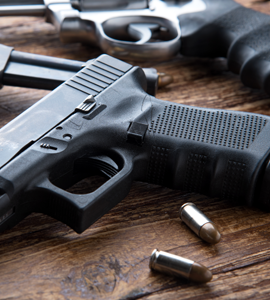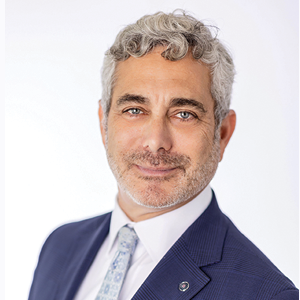Landmark Decision: Maryland Supreme Court Curtails the Use of Bullet Evidence in Courts
In a new and groundbreaking ruling, the Maryland Supreme Court in Abruquah v. Maryland, handed down a decision that sets limits on the use of bullet evidence in courts across the state. This landmark ruling has sparked debates among legal experts and citizens alike, as it raises crucial questions about the reliability and admissibility of such evidence. In this article, we will delve into the implications of this decision and its potential impact on the criminal justice system.
Bullet evidence, often presented in the form of ballistics analysis, has long been considered a vital tool in criminal investigations and prosecutions. By matching bullets found at crime scenes to firearms, experts have played a crucial role in linking suspects to specific weapons. This evidence has been admissible in Maryland courts for years, often carrying significant weight in determining guilt or innocence.
However, concerns regarding the accuracy and objectivity of bullet evidence have emerged in recent times. Questions have been raised about the methodologies employed by forensic analysts, potential bias in their assessments, and the reliability of conclusions drawn from such evidence. These concerns prompted the Maryland Supreme Court to take up the issue and revisit the admissibility standards for bullet evidence.
What Took Place
In Abruquah, the Court ruled that a firearms identification examiner testifying as an expert witness should not have been permitted to offer “an unqualified opinion that crime scene bullets and bullet fragments were fired from Mr. Abruquah’s gun”. Specifically, the Court stated that the reports, studies, and testimony presented to the circuit court (where the case was tried) demonstrated that the firearms identification methodology employed by the State’s firearm expert in the case “can support reliable conclusions that patterns and markings on bullets are consistent or inconsistent with those on bullets fired from a particular known firearm”. However, the Court went on to state that “those reports, studies, and testimony do not demonstrate that the methodology used can reliably support an unqualified conclusion that such bullets were fired from a particular [emphasis added] firearm”.
The Court's decision limits the admissibility of bullet evidence by establishing more rigorous criteria for its use in courtrooms. The court emphasized the need for a solid scientific foundation and reliable methodologies when presenting bullet evidence. Furthermore, the ruling stipulated that expert witnesses must demonstrate a clear and well-established connection between the bullet and the firearm alleged to have been used in the crime.
The Impact of the Ruling
 The Maryland Supreme Court's decision has ignited intense discussions among legal professionals, forensic analysts, and the public. Supporters of the ruling argue that stricter admissibility standards for bullet evidence will help reduce wrongful convictions and protect individuals from flawed forensic analysis. They contend that the decision compels forensic experts to rely on solid scientific methods, fostering transparency and accountability in the criminal justice system. Critics express concerns about the potential consequences of limiting bullet evidence. They contend that the decision may impede law enforcement efforts to link firearms to crimes, hindering investigations and hampering the pursuit of justice. In either case, the Abruquah decision regarding the use of bullet evidence sets a significant precedent for other jurisdictions grappling with similar concerns. It underscores the growing recognition of the need for rigorous scrutiny of forensic evidence and aligns with broader discussions on improving the reliability of scientific practices in the courtroom.
The Maryland Supreme Court's decision has ignited intense discussions among legal professionals, forensic analysts, and the public. Supporters of the ruling argue that stricter admissibility standards for bullet evidence will help reduce wrongful convictions and protect individuals from flawed forensic analysis. They contend that the decision compels forensic experts to rely on solid scientific methods, fostering transparency and accountability in the criminal justice system. Critics express concerns about the potential consequences of limiting bullet evidence. They contend that the decision may impede law enforcement efforts to link firearms to crimes, hindering investigations and hampering the pursuit of justice. In either case, the Abruquah decision regarding the use of bullet evidence sets a significant precedent for other jurisdictions grappling with similar concerns. It underscores the growing recognition of the need for rigorous scrutiny of forensic evidence and aligns with broader discussions on improving the reliability of scientific practices in the courtroom.
The ruling also emphasizes the importance of ongoing research and development in forensic sciences. It calls for continuous advancements in methodologies and technologies used in ballistics analysis, ensuring accuracy and impartiality. This decision serves as a catalyst for increased collaboration between the legal and scientific communities, fostering an environment that upholds both justice and scientific integrity.
In Summary
The Maryland Supreme Court's recent decision curbing the use of bullet evidence in courts marks a significant turning point in the state's criminal justice system. By demanding stricter admissibility standards and highlighting the need for scientific rigor, the court aims to safeguard the rights of the accused while promoting the pursuit of truth. As this decision reverberates throughout the legal landscape, it will undoubtedly contribute to ongoing efforts to strike a delicate balance between justice, science, and the protection of individual liberties.
If you have been charged with a crime involving a gun in Maryland, it is important to consult with an experienced criminal defense attorney as soon as possible. Your attorney can work to develop a strong defense strategy that will help you achieve the best possible outcome. While there is no guarantee of success in any criminal case, having a skilled criminal defense attorney is crucial to a successful outcome.
At Craig M. Kadish & Associates, LLC we have been handling gun-related criminal cases, both State and Federal, for Four (4) decades, and we would be happy to assist you or your loved one. Contact us today to schedule your free consultation.


